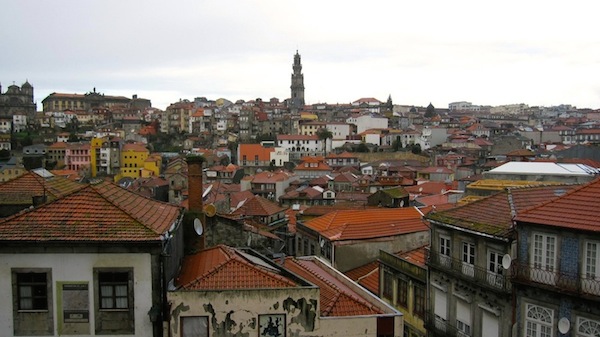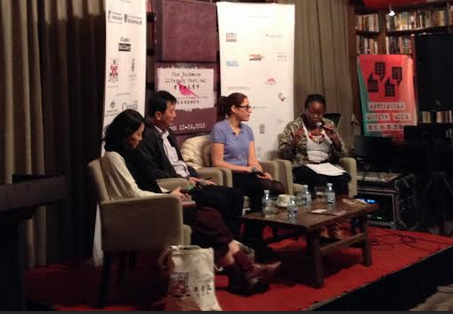Happy Friday! The time has finally arrived for the Best Translated Book Award longlist… After weeks of blog- and social-media hype, both the fiction and poetry longlists have been announced, and we can’t say we aren’t impressed! The lineup includes, among others, several Asymptote friends, like Faces in the Crowd author and blog contributor, Mexican writer Valeria Luiselli, blog interviewee and Translation Tuesday featurette Danish author Naja Marie Aidt, deceased Czech writer Bohumil Hrabal (featured in another Translation Tuesday dedication), Chinese interviewee and Nobel-deserving Can Xue, and many, many more. It’s definitely worth taking a peek through the list—I’ve no idea how the judges managed to narrow it down (at Three Percent, Chad Post laments the books he thought would make it—but didn’t), nor how they’ll be able to pick a winner from such a strong group. READ MORE…
Monthly Archives: April 2015
Weekly News Roundup, 10th April 2015: BTBA vs. VIDA vs. IFFP?

This week's literary highlights from across the world
It began with a tattoo—or, rather, the idea for one. Small, I thought, with narrow script like the scratch of an EKG, on the back of my neck or perhaps my shoulder blade. Beauty in simplicity. It was the first tattoo I had ever considered; I needed something that had meaning to me, and this word in particular—this untranslatable word meant to evoke rather than merely name, to be felt rather than read—was as familiar to me as if I’d always known it.
The definition of saudade is as varied as its definers, and the latter span miles and centuries. Most understand it as a sense of sweet nostalgia for someone, or something, that one has lost and may never find again. Manuel de Melo called it “a pleasure you suffer, an ailment you enjoy.” Saudade describes the lingering losses from the past, whether they be people left behind or times of our lives that we are loath to forget, and the bittersweet pleasure of those memories. It describes a thousand nuances of the same state of being. More than nostalgia; less than yearning. And very, very Portuguese. Maybe, in fact, too Portuguese for me to own it.
What do we mean when we say that a word is untranslatable? Do we mean that it’s inaccessible? The idea of translation is that we can convey meaning from one language to another, but that’s of course not always so simple. Many languages have their own words that lack direct translations—the French have retrouvailles, the idea of finding someone again after a long time, and the Germans amusingly have verschlimmbessern, a verb that means to make something worse while trying to improve it. It’s not that we can’t explain these words—only that it will take us a bit more time.
The Return of the Flood: How ISIS is Destroying Iraq’s Literary Heritage
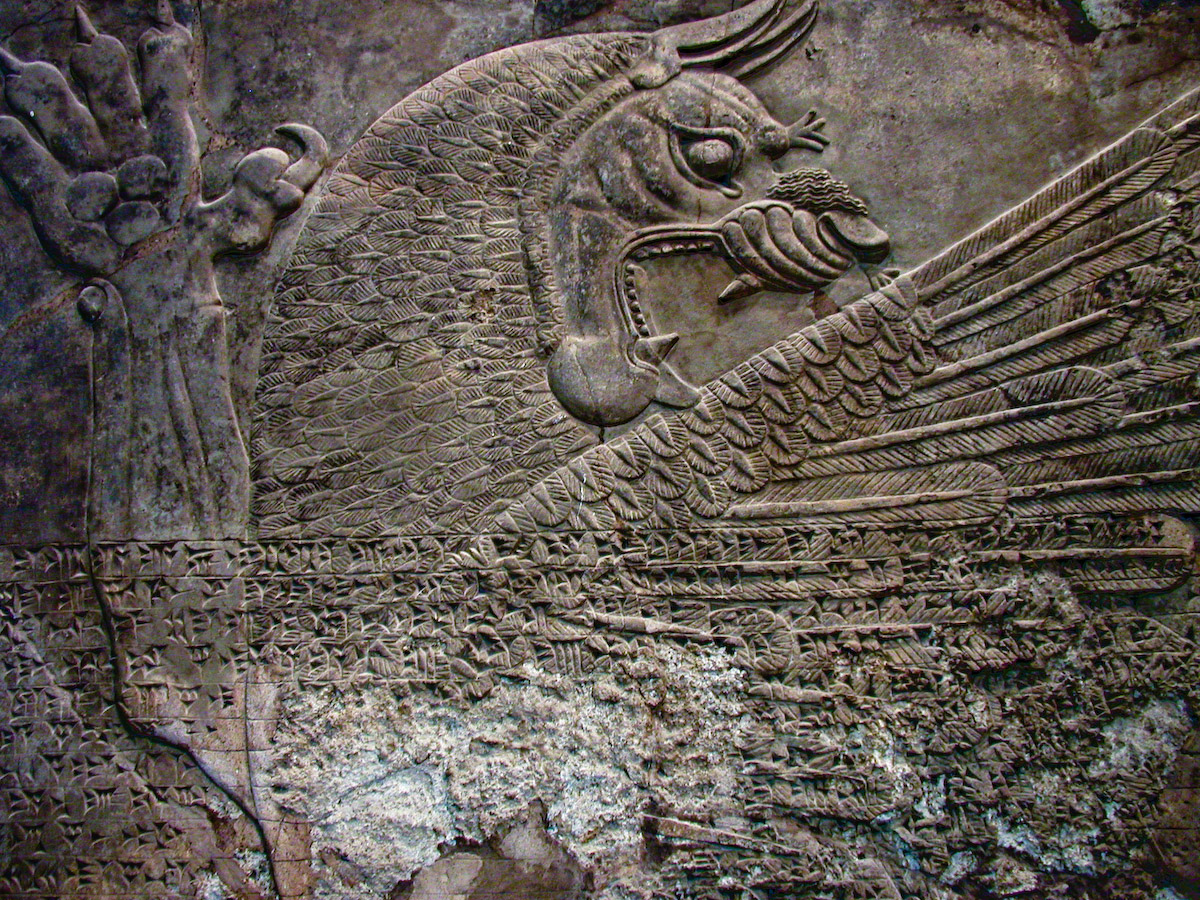
Paul M.M. Cooper assesses the damage done to Iraqi literature and heritage by ISIS’s destruction of thousands of undeciphered cuneiform tablets.
ISIS continues to shock the world with calculated acts of cultural vandalism: taking sledgehammers and electric drills to the millennia-old pieces of art held at Mosul Museum, bulldozing the archaeological sites of Nimrud and Dur-Sharrukin, and most recently releasing a video showing the destruction of artefacts at Hatra. While the predictable images of gleeful vandalism circulate on social media, archaeologists took stock of the antiquities destroyed: statues of the kings of Hatra that form “the finest of all the sculptures unearthed” in the region, several enormous winged bulls with human heads known as lamassu, and assorted irreplaceable relics of the Babylonian, Persian and Roman Empires.
ISIS’s goals are clear: to destroy anything that hints at the region’s pluralistic past, and to strike a blow full of impotent cruelty against the Iraqi government and international organisations such as the UN and UNESCO. Against this backdrop and coupled with the stunning callousness of the group’s ongoing humanitarian atrocities, it has been easy to overlook another loss, one felt particularly acutely by lovers of international literature the world over: that of the still-undeciphered cuneiform tablets caught up in ISIS’s frenzy of destruction. READ MORE…
Fish, fungi, kittens, and cockroaches mirror the protagonists in Mexican author Guadalupe Nettel’s psychologically incisive tales. In the fictional world of Hong Kong’s Dorothy Tse, brutal violence unfolds according to the incomprehensible but irrefutable logic of nightmares. Xi Ni Er preserves slices of a changing Singapore in his condensed, dialogue-driven micro-narratives.
“Complex literature” is not an unreasonable description for the work of any of these writers, but it is an awkwardly nebulous pretext for putting them on a stage together. At the beginning of the event, they sometimes seemed burdened by the duty to engage with the topic and valiantly attempt to define what complex literature might or might not be. READ MORE…
Contributing a Voice: Interviewing Guest Artist Shuxian Lee
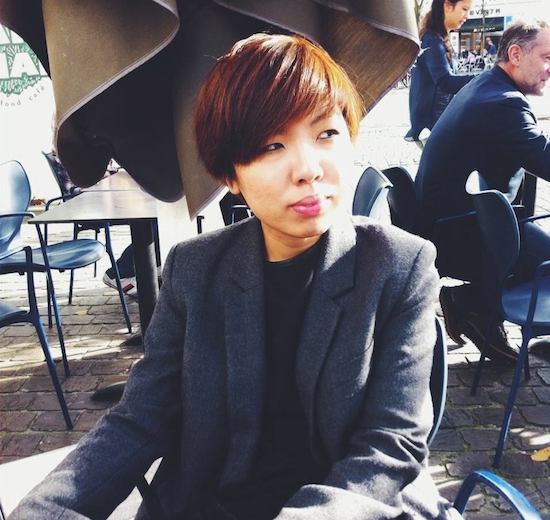
“I believe in at least making work about what I have felt or experienced or strongly believe in. Only then do I feel the urge to make art at all.”
Antwerp-based illustrator Shuxian Lee is Asymptote’s guest artist for the January issue. Her joyous, Escher-esque cover image is perfect for our 4th anniversary, while her beautiful, evocative, and often poignant illustrations accompany a total of seventeen texts. I interview her about her process and inspirations, and find out more about her graphic novels.
Berny Tan: I find your illustrations incredibly rich in both texture and colour. Could you take us through your process of conceiving and executing each piece?
Shuxian Lee: I’m quite a visual person—when I read something or feel something, I get these viewpoints in my head that are sometimes quite filmic and are related to a certain mood. Sometimes, when I come across certain expressions, I’m reminded of certain artworks or patterns that inspire me. I love to draw references to paintings because painters (mostly 19th- and 20th-century ones) are some of my biggest inspirations and first loves!
Once I get this image in my head, then I’ll sketch thumbnails of some of the ideas—though to be honest, I’m quite lazy about this part because I usually already have the finished composition in my head. Next, I look for reference images for colour, gesture or to get the perspectives right, then I start sketching. I usually make my own reference images too, and I rely a lot on my partner (or myself) as a model for my characters.
If the sketch works, I get started with the inking, then I scan it and colour it in Photoshop. I love organic textures of paint and dirt and brush marks, so I try to integrate that during the digital colouring too. In general, I work with non-digital mediums, but it’s nice to discover ways to replicate the non-digital look on Photoshop. I actually only started using Photoshop to colour a few years ago, so I’m still figuring out lots of things.
Weekly News Roundup, 3rd April 2015: Judges Bicker, Joke’s on You!

This week's literary highlights from across the world
Happiest of Fridays! Hard to believe we are already entering the fourth month of 2015. But this stretch of spring means we’re well into literary awards season, as well as awards-speculation. Close to our heart, Three Percent‘s Best Translated Book Award is just iiiiinches away from announcing the long-awaited longlist. Want some clues? Tickle your curiosity here and here. And the judges for the United States-based National Book Award have been announced. And in the Morning News’ Tournament of Books, judge Steven Merritt has ruffled feathers with disparaging reviews of Roxane Gay’s An Untamed State and Anthony Doerr’s All the Light we Cannot See. READ MORE…
Hunger and the Artist: Interviewing Windham Campbell Prizewinner Helon Habila
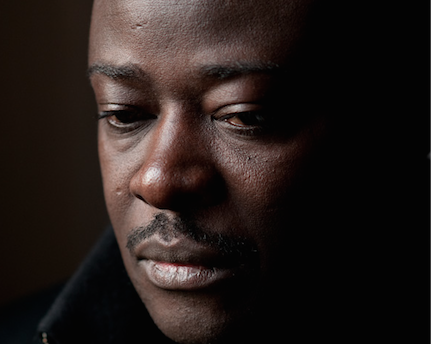
An interview with Nigerian author Helon Habila, winner of a 2015 Windham Campbell Prize in Fiction
The Windham Campbell Prize, launched just two years ago, has quickly become one of the most sought-after literary awards in the world, offering recipients the financial freedom to write with a $150,000 no-strings-attached grant. This year, Nigeria-born Helon Habila, author of the novels Waiting for an Angel (Norton, 2002), Measuring Time (Norton, 2007), and Oil on Water (Norton, 2010), received a Windham Campbell Prize in the Fiction category. Established by Donald Windham and Sandy M. Campbell, who were artists themselves, the prize recognizes writers writing in English from anywhere in the world.
Nicole Idar: The Windham Campbell Prize was inspired by Donald Windham’s own experiences as a young writer struggling to support himself, and in your own work you’ve written about young writers faced with this very struggle—Diaz, the narrator and aspiring journalist in “The Hotel Malogo,” for example. When you were first starting out as a writer, you worked as an editor for several years in Lagos. How has this struggle to balance art with financial security shaped you as a writer?
Helon Habila: Hunger, both metaphorical and literal, is always good for the artist. It sharpens your focus and drives you on. There’s a beautiful essay by Ben Okri on this subject, published in the British Council’s New Writing anthology a long time ago. It is based on his own experiences as a struggling writer in London. He describes how hunger would literally wake you up at night and drive you to the writing desk. But of course the best work on this subject for me is Orwell’s Down and Out in Paris and London. Yet, when the hunger becomes too much, it becomes a burden, not a helper. You might, for instance, find yourself writing about food for no discernible reason. I wrote my first book mostly hungry, with no computer, and by candle light because our electricity wasn’t working. This was in Lagos. I had to go to work at 7 am, and get home at around 7 pm, rest for a few hours and start writing by candle light till around 3 am. Then rest and go to work at 7 am. It was tough, but it shaped me in so many ways. I am glad that book worked out, it went on to win the Caine Prize and got me my first book deal with Penguin and Norton. It would have been devastating if it didn’t. READ MORE…
In Review: The Scapegoat
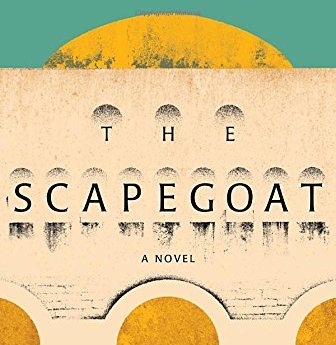
“Even though the mystery is decades old by the time it reaches the main character, The Scapegoat is a page-turner.”
It is always a good sign when a book makes you laugh on the first page. In the opening scene of Sophia Nikolaidou’s novel, The Scapegoat, an American reporter named Jack Talas observes a dirty and scabbed old villager, “A man who took life as it came and made the most of it—or so he seemed to the American, who’d been raised on eggs and bacon, had studied at expensive schools, had seen plenty of poor people in photographs. Now he wrote dispatches about them, and he did so with compassion.”
With compassion. This phrase evoked such a bombastic, self-assured character it made me laugh out loud. However, if you’re dead set on comedy, that’s too bad. Because by the next page, Jack Talas is a corpse, found floating in the Mediterranean with cuttlefish eggs in his eyelashes. The Scapegoat is based on the murder of CBS reporter George Polk, who, like his fictional double Talas, was in Greece in 1948 to expose the government’s corrupted use of American aid relief.
Talas makes enemies of everyone: the government, the communists, and even the Americans. But it is a fellow journalist, named Manolis Gris, who is accused of murdering Talas. However, the forces behind Gris’s indictment reach far beyond Gris himself.

